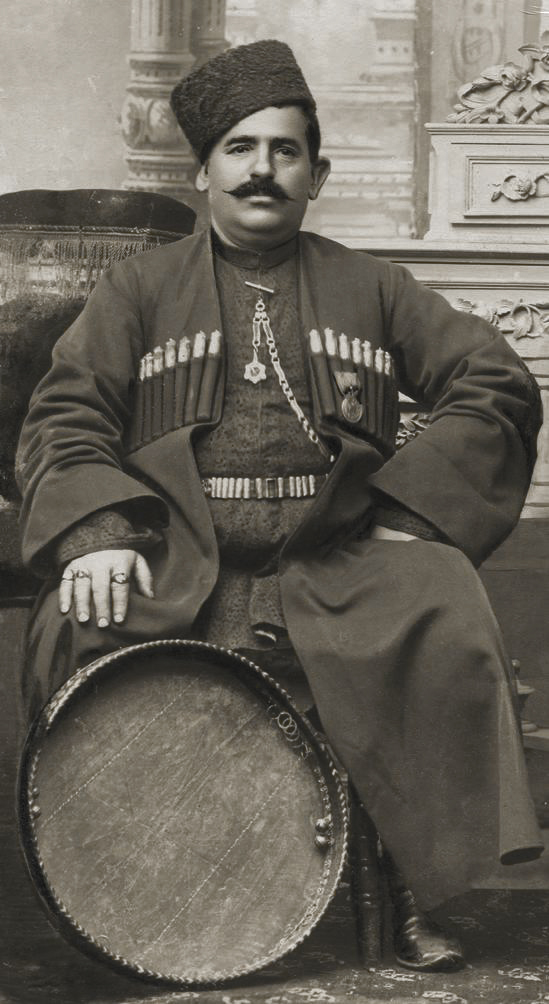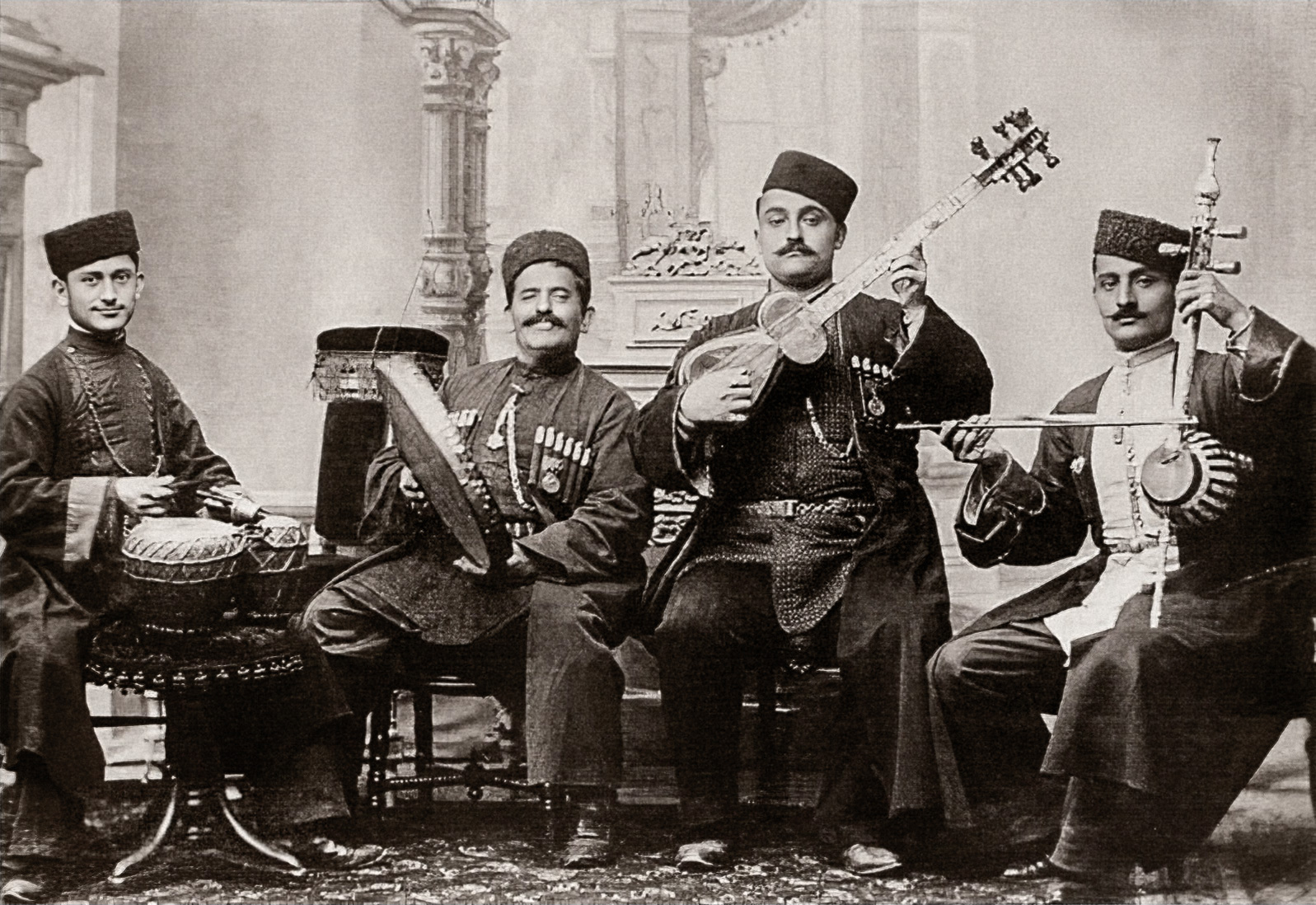Qarabag.com prepared a material about Azerbaijani folklore singer, mugham performer, a native of Shusha Bulbuljan. Khanende had a great influence on the Azerbaijani mugham school.
 Bulbuljan (real name Zulalov Abdulbaghi Kerbalai Ali oghlu) was born in 1841, in the city of Shusha.
Bulbuljan (real name Zulalov Abdulbaghi Kerbalai Ali oghlu) was born in 1841, in the city of Shusha.
[F.Shushinskiy. Shusha. 1968, p. 97]
[Encyclopedia of Uzeyir Hajibeyov. 2003, p. 106]
[Ch.Kajar. Old Shusha. 2007, p. 283]
General education Abdulbaghi received at the Shusha city school, and his musical education at the school of the Azerbaijani teacher Kharrat Kuli.
[Ch.Kajar. Old Shusha. 2007, p. 283]
[F.Shushinskiy. Shusha. 1968, p. 97;99]
After graduating from school, Abdulbaghi Zulalov, together with guitarist Sadikhjan, created an ensemble that participated in the majlises of Karabakh, Sheki, Shirvan and Ganja.
[Ch.Kajar. Old Shusha. 2007, p. 283]
For taking the first place in the music competition in Iran, Abdulbaghi Zulalov was awarded the Order of “Shiri Khurshid” (Order of the Lion and the Sun) by Nasreddin Shah Gajar. In 1873, Abdulbaghi was invited by the Azerbaijani philanthropist and poet Khurshudbanu Natavan in Shusha for participation in the ceremonial opening of a water pipeline built at her expense.
[Ch.Kajar. Old Shusha. 2007, p. 283]
In 1875 (1876), Abdulbaghi Zulalov moved to Tbilisi (Georgia). Here he performed concerts together with the Azerbaijani tarist Sadikhjan. In addition to his native language, Abdulbaghi sang in Farsi, Lezgian and Georgian languages. As the Azerbaijani art critic Firudin Shushinsky writes:
“Having studied the Georgian language perfectly, Abdulbaghi performed mugham texts in Georgian, which enraptured Georgian listeners.”
[F.Shushinskiy. Shusha. 1968, p. 99]
[Azerbaijan Soviet Encyclopedia. Volume IV, 1984, p. 349]
In the 1880s, Abdulbaghi performed at the intermissions of theatrical productions, folk festivals and masquerade balls. When he became widely known in the Caucasus, he received the pseudonyms “Bulbuljan” (from Azerbaijan. “Nightingale”) and “Boz Bulbul” (from Azerbaijan. “The Grey Nightingale”).
[The “Kavkaz” newspaper. June 19, 1882, No. 160., p. 4]
[F.Shushinskiy. Shusha. 1968, p. 100]
In the book of Chingiz Kajar “Old Shusha” there is a story about Bulbuljan’s performance before the Russian Emperor Alexander III during his trip to the Caucasus (1888).
“On the occasion of the tsar’s arrival, a reception was arranged in the Tiflis garden “Mushtaid”. When the glasses were raised to the health of the distinguished guest, Bulbuljan’s nightingale singing was heard. The singing and music so impressed the guests that Bulbuljan was in demand for all subsequent receptions in honor of the reigning personages. Returning to Russia, Alexander III entrusted with the governor to fulfill any wish of Abdulbaghi. Abdulbaghi asked to give him, according to ancient Caucasian traditions, a gun and a horse and, most importantly, to allow him to ride on this horse along the central street of Tiflis – Golovinsky Avenue. The governor – general’s palace was located there, and only his entourage had the right of passage through it. The next day, to the surprise of passers-by, a well-known singer in Tiflis pranced along Golovinsky Avenue with a gun on his shoulders, dressed in a luxurious arkhaluk (a Caucasian tight-fitting caftan with a high standing collar), a silver hat and a hunting falcon on his arm.”
[Ch.Kajar. Old Shusha. 2007, p. 284]
 Bulbuljan’s talent was also recognized by the Armenian musicologist Vasily Korganov. In his book “Caucasian Music” in 1908, he wrote:
Bulbuljan’s talent was also recognized by the Armenian musicologist Vasily Korganov. In his book “Caucasian Music” in 1908, he wrote:
“Every bicho (servant) and kinto (a man engaged in trade or without any particular occupation at all, a merry fellow, a cheat and a swindler) has access to the entire repertoire of the best Tiflis sazandar, Abdulbaghi; the latter attracts every mokalak (courtier), every “kekelka” (a snobbish woman who has a high opinion of herself) and completely satisfies them with his performance.”
[V.D. Korganov. Caucasian music. Collection of articles. 1908, p. 5]
Bulbuljan’s creative work influenced the following Azerbaijani singers: Alesker Abdullayev (Shekili Alesker), Seyid Shushinsky and Jabbar Karyaghdi oghlu. The latter admitted several times that he learned the art of singing with overflows in his voice from Bulbuljan.
[Azerbaijan Soviet Encyclopedia. Volume IV, 1984, p. 349]
[F.Shushinskiy. Shusha. 1968, p. 100]
Azerbaijani composer Uzeyir Hajibeyov assessed Bulbuljan in this way:
“The names and fame of the singers, like Abdulbaghi, became known throughout the Caucasus, acquired international significance.”
[Encyclopedia of Uzeyir Hajibeyov. 2003, p. 106]
In 1920, Bulbuljan moved to Baku. First, he taught mughams at the “Oriental Conservatory” (“Short-term courses of Oriental music”), and since 1923 at the Azerbaijan State Turkic Music School.
[Azerbaijan Soviet Encyclopedia. Volume IV. 1984, p. 349]
[Encyclopedia of Uzeyir Hajibeyov. 2003, p. 106]
In 1927, Bulbuljan was awarded the Order of Labor.
[Azerbaijan Soviet Encyclopedia. Volume IV, 1984, p. 349]
Abdulbaghi Zulalov died in August 1927 in Baku.
[Azerbaijan Soviet Encyclopedia. Volume IV. 1984, p. 349]
[Encyclopedia of Uzeyir Hajibeyov. 2003, p. 106]




